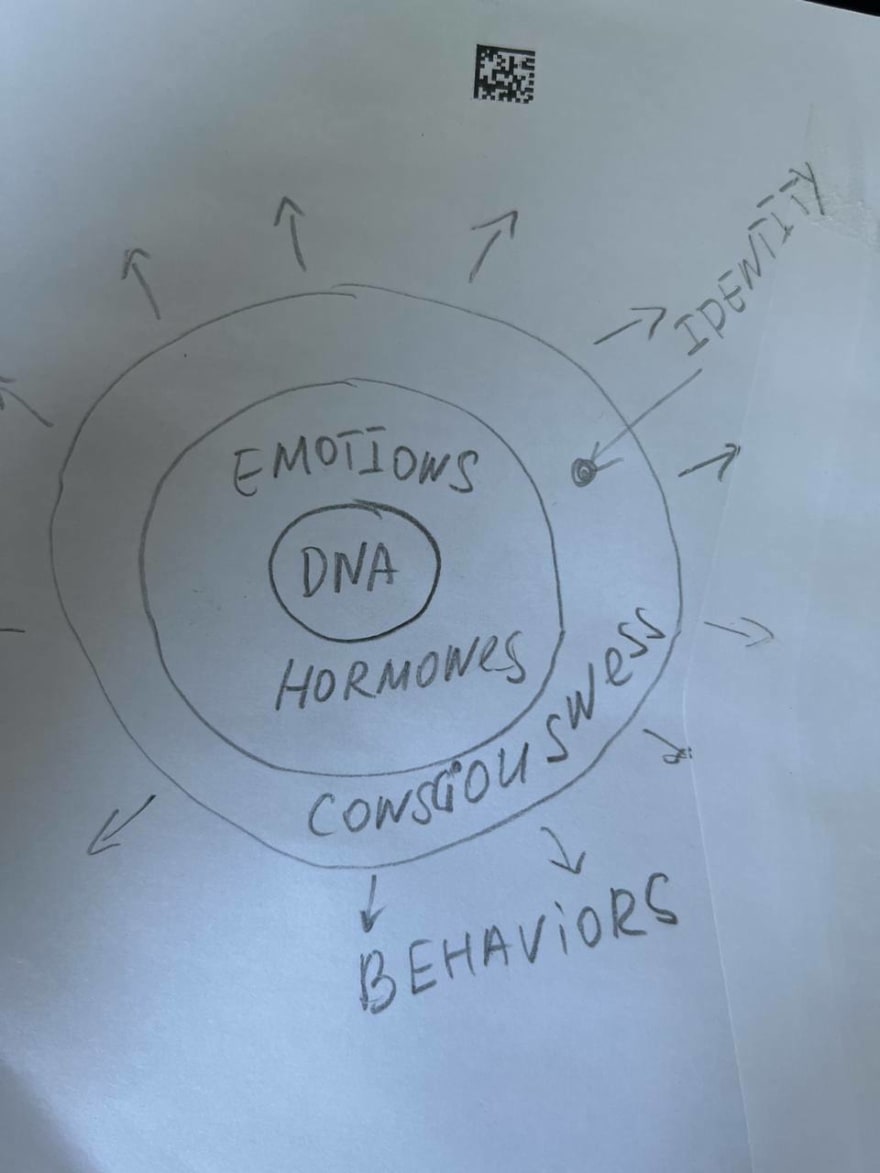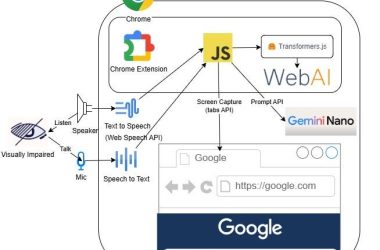In the beginning of January’23 I was laying on my bed and watching “Love on the spectrum”. You see, the person I love dearly has been just diagnosed with ADHD and autism. The second part actually came as a surprise: how can they be autistic?! I could never relate to anyone more then I do to this amazing person and neither of us looked like a “Good Doctor” or Sheldon. The documentary was my attempt to broaden my views and learn more about autism: I was particularly interested in how autists feel and how they show their love.
First couple of “contestants” looked exactly like media taught me autistic people should look like: they loved trains, cars and spoke without any consideration for other’s feelings. But then there was a girl that looked “normal”. While she talked about herself I was getting more and more annoyed: there’s nothing special about her worldview, it’s not very different from my own. What a phony documentary… And then it hit me.
Ok, Google: how autism presents in females
I searched my memory database and couldn’t find any female autistic model. I don’t remember how much time I spent jumping from one google search to another, from article to article, from test to test: I tend to lose track of time when I’m onto something.
Finally everything was making sense! My intolerance of egg shells or greasy hair, why I played games with subtitles and without sound, why I drew a boy with very visible genitalia when I was in first grade, why I cry of sadness and happiness so very often, why I can’t accept anything without fully understanding it, why I can’t let go if I latch into something and, most importantly, why I have been so goddamned miserable my whole life no matter how hard I tried or how much progress I made.
Not broken, just different!
On January 27th I entered my doctor’s office and I drew a diagram of my personality when he asked me what brought me there. Here it is, if you wonder:
I’ve explained that the closer to the core – the less control I have over that area. I can adjust my behaviours, but they are heavily influenced by my feelings, which fire up like alarms every time there’s an opportunity to act in favour of my essence (labeled as DNA) and I can only acknowledge those alarms.
And, finally, I placed a tiny dot on the “consciousness” circle: that’s my identity – a mind-cached version of my “core”. “That dot is very small now, there’s only one thing there at the moment.”, – I said – “I suspect that I’m autistic”.
It was very important for me to be validated there and then: had he said I’m delusional – my whole identity and the last hope of understanding myself would vanish…
Gladly, he didn’t. He asked me if I intentionally drew consciousness as a shield and why emotions were wrapped in it. He talked about autism and how it’s a huge misconception that autists don’t feel anything, while the exact opposite is true – they feel everything ten fold, including deep empathy for inanimate objects.
He was careful, I knew he would be: to be diagnosed with Autism Spectrum Disorder one needs to wait in a long line for a psychiatric assessment and he couldn’t possibly bypass that. Yet, by the end of our session he moved from “I don’t see anything wrong with your train of thought” to more literal “I have performed multiple autism assessments myself and I have no doubts you are autistic.”
Too smart to be diagnosed?!
That day I got a dubious “Other work-related condition” diagnosis and a note in my journal, stating that while he agrees with my self-diagnosis, he believes that by using my cognitive skills, I’ve built coping mechanisms that allow me to remain not only functional, but live happily ever after and that further investigation and diagnosis are irrelevant.
“The patient agrees” – the note concluded rightfully so. There is no benefit I can get from an official diagnosis, there’s no medication for my “condition” and by all means I’m coping well on my own. The only support I need I can get regardless: a bit of a guidance to expand my identity and understand the difference between me and my neurotypical peers.
I am relieved and happy and my identity now has a strong foundation, but there is something he said that doesn’t sit right with me: “There’s a lot of unlucky people who aren’t as smart as you and they are really disabled by their autism”
Don’t want to be the lucky one
First of all, it has been rough 36 years and I’m really sour that I’ve spent them all not knowing who I am, masking and mimicking behaviour of others to fly under the radar. Sure, I was lucky (impulsive, courageous, naive) enough to accidentally build a career out of my special interests and after lots of trial and error find work environment that accommodated my needs of autonomy, direct feedback, sane deadlines and flexible schedule, but what about the others?
As soon as I suspected my autism I’ve connected with people in the same boat: some were much smarter than me, some were more talented than me, some were more different than alike and very few of them were happy with their life.
But I am happy, despite of everything I’ve been though. The very same traits that were supposed to disable me done the exact opposite. In the past six months I have been through work burnout, had my marriage shattered to pieces and needed to fully take on childcare. And yet I have never felt better.
That doesn’t make any sense, does it? If I’m so smart and that somehow protected me, why wasn’t it a universal experience for autistic folks with high IQ? Why did they struggle to find a job, have a family, find a sense of belonging in this world and instead were deeply depressed and lost?
I don’t have all the answers, but I think I have this one: because we’re all different. Autistic or not, neurodivergent and neurotypical – we are all individuals, unique and essential for each other, every single one of us. I was lucky to find people that allowed me to be myself and then I had the confidence to convince the rest. I was lucky to have a specific blend of high mental capacity, willpower and emotional resilience (and feelings) of a hormonal teenager that I never outgrew.
I don’t want to be the lucky one, the anomaly within a minority, I want to be one of a million of lucky ones. I want my neurodivergent children to grow in a more accepting and compassionate world.
That – acceptance and compassion – is where we should begin.
But it’s really hard to accept self, not to mention other people, when you are hungry, cold and not sure if you’ll survive, isn’t it?
It’s dark and scary and very uncomfortable to talk about, but here is me: a privileged white woman in a nordic country with a fancy job title, good salary, typing this from an expensive laptop, who got cured of a life long struggle with a Netflix show, some google searches and one talk with a therapist; and there are hundreds and thousands of people on a different distance from the edge of disaster, severely exhausted, with little to no means of support, wanting to be part of this very society and contribute their talents to the benefit of all.
And so the only thing I can do as an autistic person who can’t possibly guess what others want of me is ask: What can I do to help?
How can I help
I did ask this question in person and on Reddit and my reach was tiny, but judging by the answers I got – neurodivergent people need tools to be able to support themselves first and foremost. The next in the list was advocacy. I don’t like word “advocacy” as it not very precise, for me it means respect, compassion and unconditional love.
So the next time I’ll see a person that would strike me as odd, I’ll keep an open mind and assume that this person knows something that I don’t and vice versa. I am working hard on training my patience, I’m learning to ask questions instead of spiralling into a whirlwind of “what if”s and I’m opening up about my experience in the hopes that it’ll help others find some solace and build their own identities.
That I can do on my own and I’m doing in hopes of fighting the stigma I surely perpetuated myself. But here’s something I need help with.
All people need access and opportunities to develop their skills, build careers out of their special interests and have a chance to be as privileged as I am.
Here’s a quote from one of my respondents:
Musicians, specially neurodivergent musicians, need better tools to accommodate their process of working and thinking, freeing their attention and creativity from having to deal with technical frustrations and being able to focus more solely on the music itself.
It’s amazing how if you apply the same exact phrase to designers, content creators and software developers it still makes sense, while only the latter have access to a subset of tools and methodologies that make it possible.
I have spent over a decade of my life building software and I love it still, but I’m not enough.
The beauty of neurodiversity is the endless possibility of combinations: would I try and solve everything by myself I’d defy the very core of my ideology.
Therefore,
Here’s what I have right now
I have a logo and a name for this project:
The name comes from the abbreviation “ND”, but I like how it becomes almost a name, but not quite. It stands for neurodiversity and neurodivergent, as well as “_n_ot broken, just _d_ifferent” and “not disabled”. Pick the one that you like most or come up with your own, it’s a flexible name!
The logo is composed out of black and white infinity symbol and a heart. Hearts represents love and compassion; infinity symbol is almost like the ones for neurodiversity and autism, except it’s not colored. It’s not up to me to decide what’s on the spectrum or not and I wanted the logo to be flexible too – it’s an empty canvas, ready to be painted on.
I’ve also created a GitHub organisation as a platform for discussions and specifications of what this project should blossom into.
At the very least it’ll give more people a chance to build a portfolio and get some mentoring and hands on experience to kickstart career in IT, I’ll help with it to the best of my abilities. I do believe we could do much more together!
I would love to hear your ideas, opinions, suggestions, needs and, if you feel up for a challenge, to join me in building a digital bridge over a gap in our differences.







